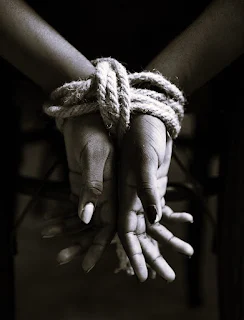Mauritania and Chattel Slavery: History, Laws, and Ongoing Challenges
Slaves Bought and Sold Like Baseball Cards: Mauritania and Chattel Slavery
Chattel slavery is the worst. Mauritania abolished chattel slavery in 1981 and later criminalized it through the Slavery Acts of 2007 and 2015, yet the laws have not fully ended this entrenched practice.
Chattel Slavery Definition
In the chattel slavery system, enslaved individuals were treated as personal property for life — bought, sold, or traded like baseball cards. This brutal institution produced immense wealth and power for enslavers.
Mauritania’s Slavery Acts of 2007 and 2015
France declared an end to slavery in Mauritania in 1905 but failed to enforce it, citing respect for local traditions and the colonial economy.
Mauritania officially abolished chattel slavery in 1981. The 2007 Slavery Act criminalized slavery and slavery-like practices, and the 2015 law closed gaps in enforcement. Read more on African human rights progress .
Mauritania and Chattel Slavery Are Intertwined
For decades, Mauritania’s Bidan (White Moors) enslaved Black Moors, or Haratines, who were born into servitude. Many Haratines still face unpaid labor and lack legal recourse. Learn about Mauritania’s Haratine community .
Despite abolition, chattel slavery persists, keeping Haratines trapped in cycles of exploitation and exclusion.
Denial of Education Perpetuates Slavery
Limited access to schooling and jobs prevents many Haratines from breaking free. With few options beyond servitude or informal labor, they remain tied to their former masters.
Modern Realities
Although Mauritania banned slavery in 1981, criminalized it in 2007, and strengthened the law in 2015, enforcement remains weak. According to a 2018 NGO report, over 2% of Mauritanians live in slavery-like conditions, while thousands more face discrimination, poor education, or lack of identity papers that leave them in de facto bondage.
The UN warns that descent-based slavery still exists across Mauritania’s communities. “Chattel slavery persists in Mauritania,” noted UN expert Tomoya Obokata in May 2022. Explore how Africa combats modern slavery .
Chattel Slavery vs. Human Trafficking
Chattel slavery is based on race and descent, while human trafficking exploits psychological or economic vulnerability. Both involve brutal exploitation, where people are sold or coerced for profit.
🍲 Love African flavors and stories? Get fresh recipes and articles delivered to your inbox.
✉️ Subscribe to The African GourmetMore articles you may find thought-provoking:
- That African Fabric You're Wearing Isn’t African
- About neck elongation rings
- Lighthouses of Egypt and Morocco
- Mental Illness in Africa Taboos
- Kente cloth inspired by a spider’s web




























